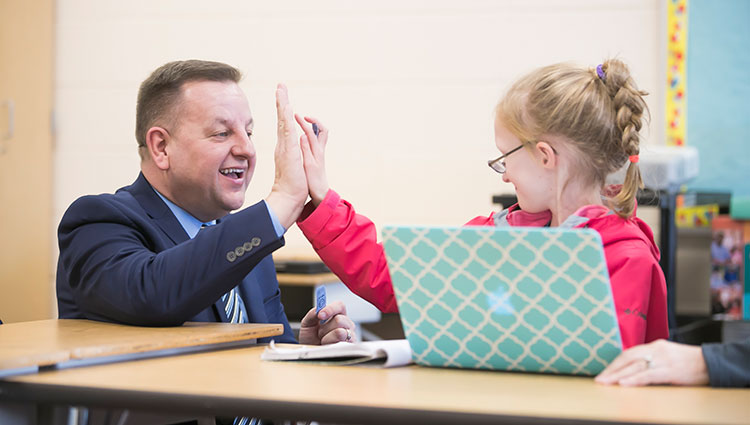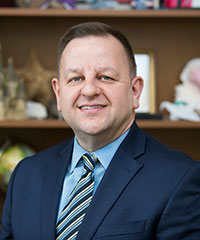Guest Voices: How My Special Education Background Has Made Me a Better Principal
February 5th, 2019


Nigel LaRoche has been the principal at Dayton Oaks Elementary School since 2017, and previously served as assistant principal at Waterloo Elementary School. He began his career as a special educator and taught special education at the elementary and middle school level for more than eight years. LaRoche also spent much of his career as a behavior specialist with the HCPSS Department of Special Education.
Every day, special education teachers and support staff in HCPSS work tirelessly to educate and support students with disabilities, providing the specialized instruction, individual care and compassion that are critical to student success and learning. As the principal of Dayton Oaks Elementary School, it is no longer possible for me to engage in many of the hands-on tasks and responsibilities needed every day to support students with disabilities. However, I credit my experiences as a special educator for giving me many of the skills and experiences necessary to be an effective principal, serving not just students with disabilities, but all students.
My background has reinforced my perspective that every child can learn and achieve, given appropriate supports and specialized instruction, and this belief drives many of my actions as a principal. With or without a background in special education, all principals can support teams, teachers, families and students in many ways. The following skills, which I honed during my tenure in special education, have served me well in the role of a principal, especially when serving students with special needs and their families.
- The principal should strive to be a cheerleader and advocate for all students.
- It takes many individuals from different disciplines to support student growth and learning. Whenever possible, facilitate collaboration between all stakeholders.
- When principals get to know the families of students with disabilities, trust is built and a home/school partnership can be the beneficial outcome.
- Principals can ensure the IEP team meeting is truly collaborative and student-centered by contributing to the conversation, supporting the discussion and maintaining focus on the child. Observing the student and gathering data prior to the IEP meeting are also worthwhile.
- Having a solid working knowledge of special education law, IEPs, procedures, rights and responsibilities, as well as knowing who to call on for support helps build confidence with families.
- Understanding the legal aspects of discipline related to students with disabilities is also essential.
- Special education procedures can be complex and shouldn’t overwhelm any principal. Although mistakes are sometimes made, as long as the principal maintains a collaborative problem-solving stance and keeps the child at the center of the discussion, parents are often understanding, especially when they feel we are all on the same team!
- The HCPSS Department of Special Education has expertise and perspective that can be invaluable with a variety of situations. Principals should seek their technical advice and support, and encourage school staff members to do so.
When principals are passionate visionaries about inclusion and the many benefits it provides to all students, staff is more likely to be just as invested in this vision, which leads to growth and learning for all.
Students with disabilities have the same basic wants and needs as all students; a sense of belonging, academic, social and emotional mastery, independence with tasks and an opportunity to demonstrate generosity toward others. These are beliefs any principal can have and communicate, with or without a special education background.
 HCPSS
HCPSS